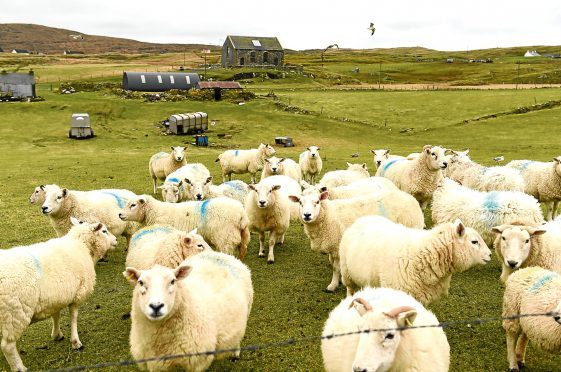The Scottish Crofting Federation (SCF) has published a wishlist outlining its key demands for future agricultural policy once the UK leaves Europe.
The federation has sent a document, titled SCF Post-Brexit Position, to government ministers and politicians. The document focuses on four key areas – support, trade, animal welfare and provenance, and environmental protection.
It calls for support to be maintained post-2022 at a similar level to now, and for the emphasis to be on production and activity.
The SCF also calls for all future support schemes to be “croft-proofed” and for common grazings, in particular, to be designed into schemes and not tagged on as an afterthought. Other legislative wishes include a cap on subsidy payments to any one person or business of £150,000 and for Scotland’s share of the UK agricultural budget to be split based on agricultural output and not the Barnett formula.
Among the federation’s trade demands are calls for continued tariff-free access to existing EU markets and for there to be no increase in quotas of imports such as New Zealand lamb.
The SCF also calls for the creation of more local, small-scale abattoirs to reduce livestock fatigue, and for any future environmental schemes to be simple for smaller units, such as crofts, to implement.
“Leaving the Common Agricultural Policy (Cap) provides the opportunity to have an agricultural and rural development programme tailored to Scotland, encouraging more small-scale land use, delivering high quality, high animal welfare, High Nature Value food, with provenance we are proud of,” said SCF chairman Russell Smith.
“We can move to a system of using public money to deliver public goods through a shift in balance from untargeted income-support payments to a targeted rural development programme, giving fairer pricing for high quality produce, fairer payment to producers and better use of public money.
“Such a system would allow us to build in support for common grazings from the start so that more use could be made of this important resource.”
He said agriculture was at the heart of crofting, and crofting was vital to Scottish rural development.
According to the SCF, crofting covers more than 10% of Scotland’s agricultural land and supports thriving communities in remote rural areas such as the Highlands and islands.
“This paper covers our current thoughts and we continue to gather our members’ views. We are constantly meeting with the decision-makers, representing crofters’ interests,” added Mr Smith.
